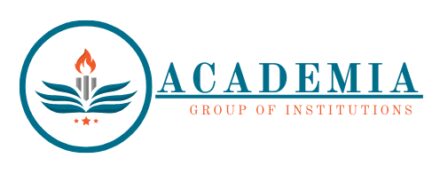All about IIT JEE Exams.
January 24, 2024 2024-01-24 13:35All about IIT JEE Exams.
All about IIT JEE Exams.
The Indian Institutes of Technology Joint Entrance Examination (IIT JEE), now known as the Joint Entrance Examination (Advanced) or JEE Advanced, is an entrance examination for admission to undergraduate programs at the Indian Institutes of Technology (IITs). The exam is considered one of the most challenging engineering entrance exams in India.
Here is some key information about the IIT JEE:
- Two Stages:
- JEE Main: The first stage is JEE Main, which is conducted by the National Testing Agency (NTA). It serves as a screening test for admission to various undergraduate engineering programs across India, including the NITs (National Institutes of Technology) and IIITs (Indian Institutes of Information Technology).
- JEE Advanced: Only those students who qualify in JEE Main are eligible to appear for JEE Advanced. JEE Advanced is conducted by one of the IITs on a rotational basis. It is the gateway for admission to the IITs.
- Eligibility Criteria:
- Candidates must have completed their 10+2 or equivalent examination.
- They must have studied Physics, Chemistry, and Mathematics as compulsory subjects.
- Candidates can attempt JEE Advanced a maximum of two times in consecutive years.
- Selection Process:
- Admissions to undergraduate programs at IITs are based on the All India Rank (AIR) obtained in JEE Advanced.
- Each IIT independently decides the cutoff for various courses and categories based on the performance of candidates in JEE Advanced.
- Syllabus:
- The syllabus for JEE Advanced is similar to that of JEE Main, covering topics in Physics, Chemistry, and Mathematics.
- Exam Pattern:
- JEE Advanced has a different exam pattern compared to JEE Main. It includes multiple-choice questions, numerical answer-type questions, and other question formats.
- Preparation:
- As the exam is highly competitive, aspirants often undergo extensive coaching and self-study to prepare for it.
- Regular practice, solving previous years’ question papers, and time management are crucial for success.
- Counseling:
- After the declaration of JEE Advanced results, a centralized counseling process is conducted for admission to IITs, known as JoSAA (Joint Seat Allocation Authority).
It’s important for aspirants to stay updated with the latest information, changes in the examination pattern, and other relevant details by referring to the official websites of the organizing bodies.
Syllabus for Mains and Advance
The syllabus for JEE Main and JEE Advanced is quite comprehensive, covering a wide range of topics in Physics, Chemistry, and Mathematics. Here’s a general overview of the syllabus for both examinations:
JEE Main Syllabus:
Physics:
- Physics and Measurement
- Kinematics
- Laws of Motion
- Work, Energy, and Power
- Rotational Motion
- Gravitation
- Properties of Solids and Liquids
- Thermodynamics
- Kinetic Theory of Gases
- Oscillations and Waves
- Electrostatics
- Current Electricity
- Magnetic Effects of Current and Magnetism
- Electromagnetic Induction and Alternating Currents
- Electromagnetic Waves
- Optics
- Dual Nature of Matter and Radiation
- Atoms and Nuclei
- Electronic Devices
- Communication Systems
Chemistry:
- Some Basic Concepts in Chemistry
- States of Matter
- Atomic Structure
- Chemical Bonding and Molecular Structure
- Chemical Thermodynamics
- Solutions
- Equilibrium
- Redox Reactions and Electrochemistry
- Chemical Kinetics
- Surface Chemistry
- Classification of Elements and Periodicity in Properties
- General Principles and Processes of Isolation of Metals
- Hydrogen
- S-Block Elements (Alkali and Alkaline Earth Metals)
- P-Block Elements
- D- and F- Block Elements
- Coordination Compounds
- Environmental Chemistry
- Purification and Characterization of Organic Compounds
- Some Basic Principles of Organic Chemistry
- Hydrocarbons
- Organic Compounds Containing Halogens
- Organic Compounds Containing Oxygen
- Organic Compounds Containing Nitrogen
- Polymers
- Biomolecules
- Chemistry in Everyday Life
- Principles Related to Practical Chemistry
Mathematics:
- Sets, Relations, and Functions
- Complex Numbers and Quadratic Equations
- Matrices and Determinants
- Permutations and Combinations
- Mathematical Induction
- Binomial Theorem and its Simple Applications
- Sequences and Series
- Limit, Continuity, and Differentiability
- Integral Calculus
- Differential Equations
- Co-ordinate Geometry
- Three Dimensional Geometry
- Vector Algebra
- Statistics and Probability
- Trigonometry
- Mathematical Reasoning
JEE Advanced Syllabus:
The JEE Advanced syllabus is essentially an extension of the JEE Main syllabus, with some additional topics. The format of questions may also be more analytical and challenging.
The additional topics in Mathematics, Physics, and Chemistry are typically covered in the 11th and 12th-grade curriculum, and they include advanced concepts and applications.
It’s important for candidates to refer to the official information provided by the exam conducting authorities for the most accurate and up-to-date syllabus.
JEE Advanced Syllabus
The JEE Advanced syllabus is quite extensive and covers a wide range of topics in Physics, Chemistry, and Mathematics. The syllabus is designed to test the analytical and problem-solving skills of candidates. Here is a detailed overview of the JEE Advanced syllabus:
Physics:
- General Physics:
- Mechanics
- Thermal Physics
- Electricity and Magnetism
- Optics
- Modern Physics
- Mechanics:
- Units and dimensions
- Kinematics
- Laws of motion
- Work, energy, and power
- Rotational motion
- Gravitation
- Thermal Physics:
- Thermodynamic principles and concepts
- Kinetic theory of gases
- Calorimetry and thermal expansion
- Electricity and Magnetism:
- Electrostatics
- Current electricity
- Magnetostatics
- Electromagnetic induction
- Alternating currents
- Optics:
- Geometrical optics
- Wave optics
- Modern Physics:
- Atomic Physics
- Nuclear Physics
Chemistry:
- Physical Chemistry:
- General concepts
- Gaseous and liquid states
- Atomic structure and chemical bonding
- Energetics
- Chemical equilibrium
- Electrochemistry
- Chemical kinetics
- Inorganic Chemistry:
- Isolation/preparation and properties of the following non-metals
- Preparation and properties of the following compounds
- Transition elements
- Ores and minerals
- Extractive metallurgy
- Principles of qualitative analysis
- Organic Chemistry:
- Concepts
- Preparation, properties, and reactions of alkanes, alkenes, alkynes
- Reactions of benzene
- Phenols
- Carboxylic acids
- Amines
- Carbohydrates, amino acids, and peptides
- Properties and uses of some important polymers
Mathematics:
- Algebra:
- Algebra of complex numbers
- Theory of equations
- Probability
- Trigonometry:
- Trigonometric functions and equations
- Properties of triangles
- Analytical Geometry:
- 2D coordinate geometry
- 3D coordinate geometry
- Differential Calculus:
- Limits and continuity
- Differentiability
- Application of derivatives
- Integral Calculus:
- Definite and indefinite integrals
- Application of integrals
- Vectors:
- Vectors in 2 and 3 dimensions
- Scalar and vector products
- Statistics:
- Measures of central tendency
- Dispersion
- Probability:
- Probability distributions
This is a general overview, and within each topic, there are numerous subtopics. Aspirants are advised to refer to the official information provided by the exam conducting authorities for the most accurate and up-to-date syllabus. Additionally, any changes or updates to the syllabus may be communicated through official notifications.



